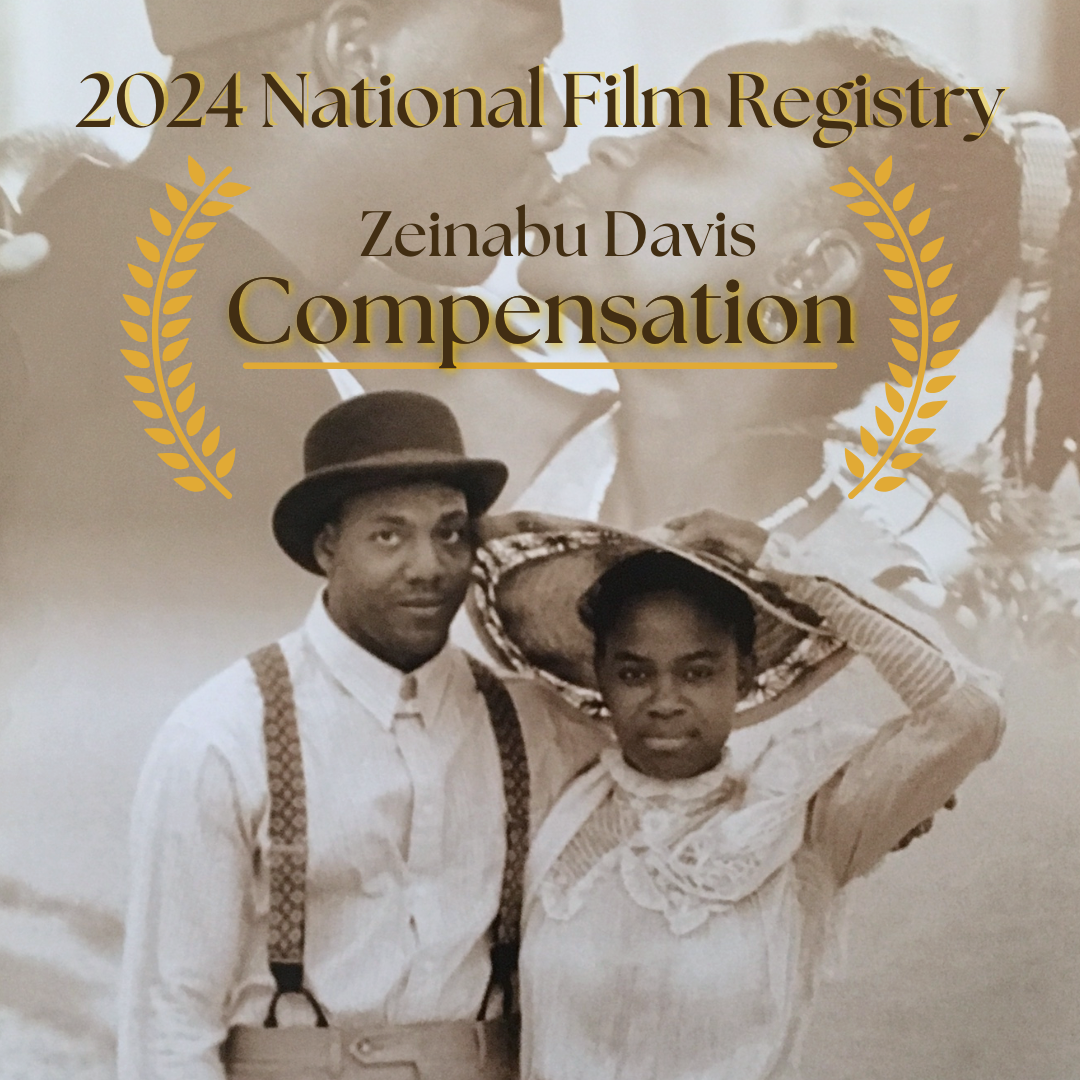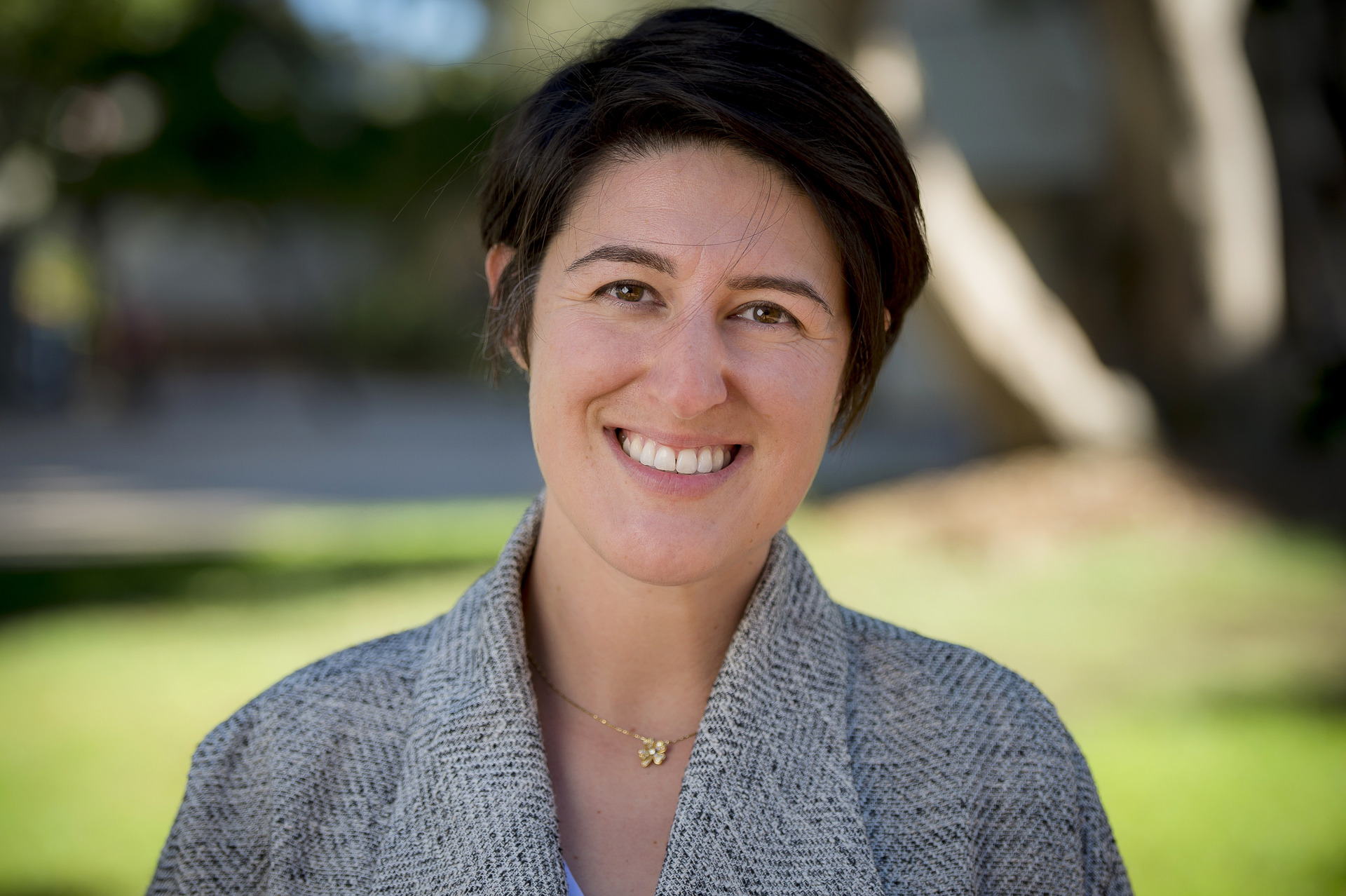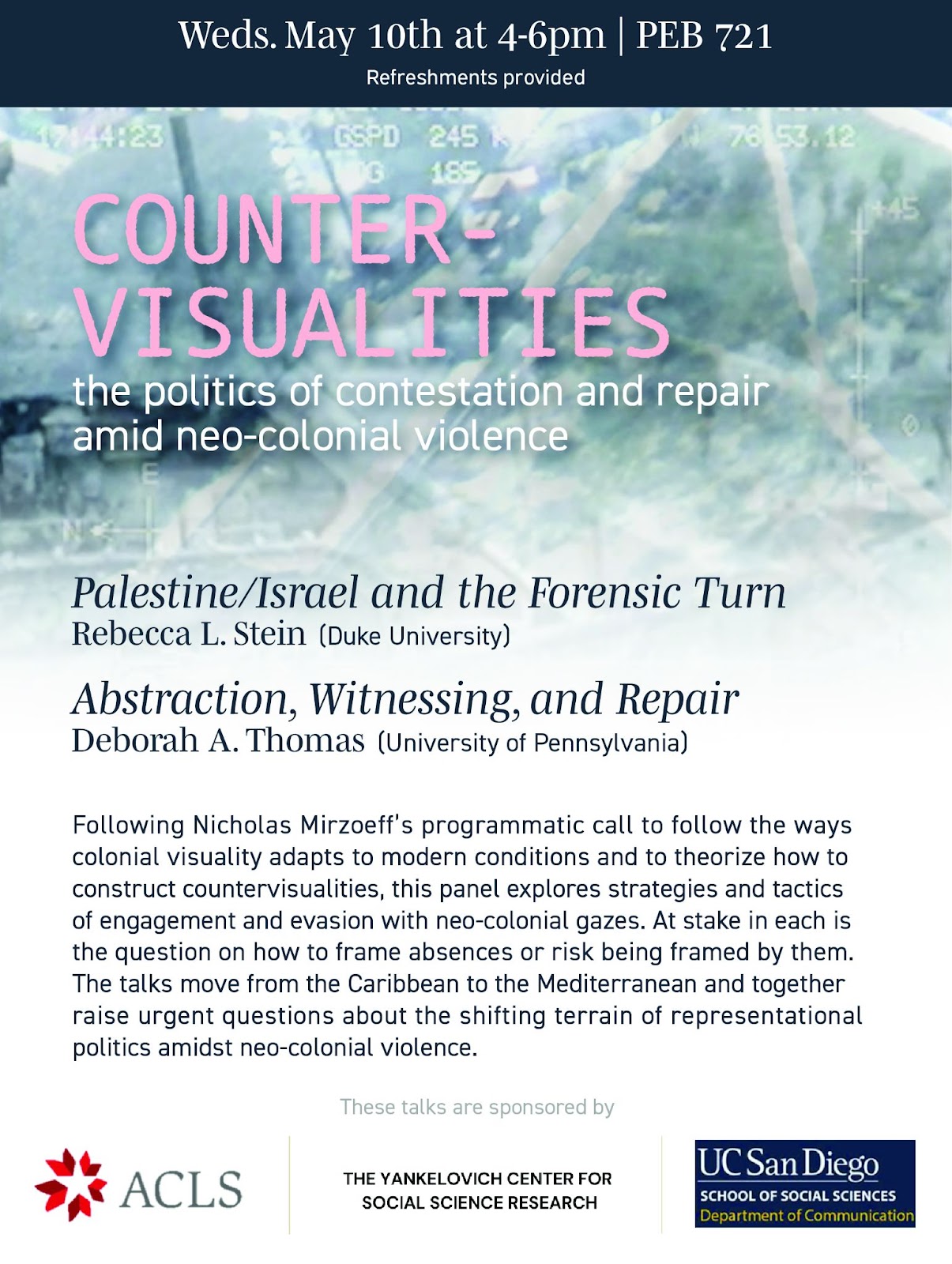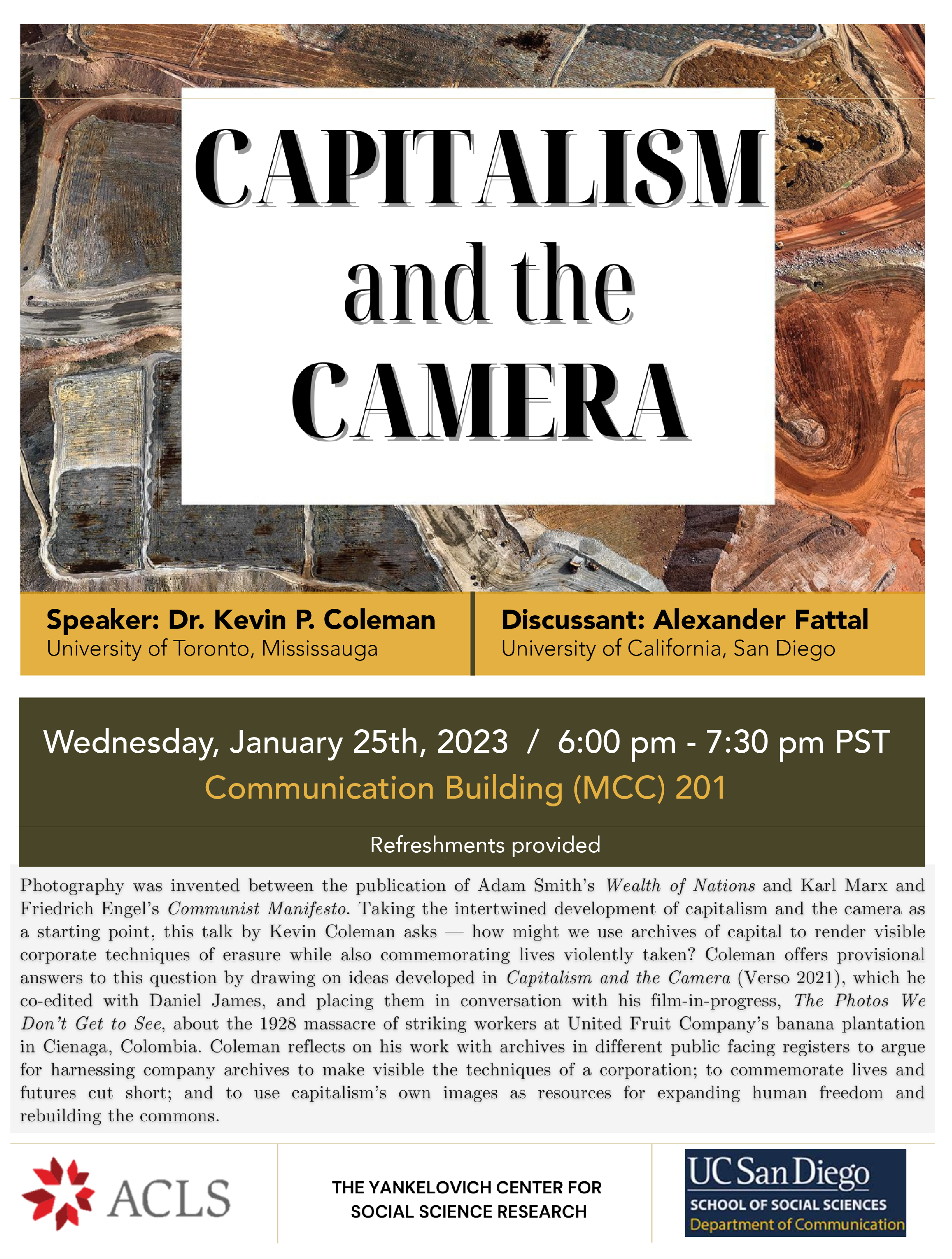News and Awards
- Awards and Achievements
- In Memorium
- Alumni News
- In the News
The UC San Diego Communication Department proudly celebrates Professor Zeinabu irene Davis as her groundbreaking film Compensation (1999) has been officially added to the National Film Registry at the Library of Congress. This prestigious recognition honors Compensation as a film of cultural, historical, and aesthetic significance, cementing its place in the canon of American cinema.

Compensation is a powerful and visually striking film that tells parallel love stories across two different time periods in Chicago—one set in the early 20th century and the other in the late 20th century. Through a unique storytelling approach inspired by silent-era Black filmmakers, the film follows the relationships between a deaf woman and a hearing man in each era, exploring themes of love, loss, accessibility, and the intersection of race and disability. By blending poetic intertitles with evocative imagery, Compensation offers a rare and vital perspective on the experiences of the Black Deaf community.
Professor Davis, an acclaimed filmmaker and scholar-practitioner, has dedicated her career to amplifying underrepresented voices in film and media. Her work delves into issues of race, gender, and cultural history, offering a critical lens on storytelling and identity. The induction of Compensation into the National Film Registry affirms its enduring impact and underscores the importance of diverse narratives in American cinema.
The National Film Registry selects films each year that are deemed “culturally, historically, or aesthetically significant” and preserves them for future generations. Compensation now joins an esteemed list of films that have shaped the landscape of filmmaking and storytelling in the U.S.

Lilly Irani, Ph.D., and her team work to support United Taxi Workers San Diego in their efforts to create a more equitable model for on demand transport to support both workers and their passengers. She also helps San Diego communities gain more control over the surveillance infrastructures that the City of San Diego installs in their neighborhoods. A member of the TRUST Coalition steering committee, she ensures the city has advice on the impacts of surveillance technology before investing money in overpriced technologies that could harm communities.
“I appreciate the freedom to do research and put my time towards the needs of the communities I live in. The Department of Communication and the Design Lab value teaching and working on projects that may not attract tons of grant funding at first, but that communities care about. This lets me follow community needs and figure out how we can deepen the financial support later, rather than following only what funders want.”
Irani is an associate professor in the UC San Diego Department of Communication; co-director of the Just Transitions Initiative at the UC San Diego Design Lab; and faculty director of the UC San Diego Labor Center.
Marco Werman, host of the international news program "The World" by GBH and PRX, joined UC San Diego in spring 2022 as the school’s first journalist-in-residence. Over his 40-year career, Werman has done freelance reporting for the BBC World Service as well as other public radio shows, receiving numerous awards for his work along the way. UC San Diego Magazine sat down with him to learn more about what this new position entails and his impression of campus thus far.
Tell us about your role as a “journalist-in-residence” at UC San Diego.
It's a work in progress. I broadcast two days a week from the Department of Communication Social Sciences Research building. I have an office on the ground floor and provide a practical way of seeing how journalism is produced. I've been in a couple of classes and co-taught with some pro
fessors. I ran a workshop on writing ledes for radio stories or any other kinds of stories. I hope to connect with more students and faculty. And maybe in spring 2024 a lectureship on how to produce a show. Like I said, it's still very much a work in progress.
What's been your impression of UC San Diego so far?
It's a big school. I grew up in Chapel Hill, North Carolina. I think there were like 20,000 students there. It's almost double that [at UC San Diego]. It's a really impressive campus. The students I've encountered in classes have been really sharp and on the ball. My sense is that students here really want to know, they want to analyze, they want to be critical. I feel that in many places.
There are a lot of people who mistrust the news. So what do you think the implications of that are for journalists?
As we've seen with the recent firing of Tucker Carlson, I think that we get people who are not journalists being seen as journalists. And so all journalists get painted with that brush, and that's really dangerous. I mean, none of my colleagues are anything remotely resembling Tucker Carlson. We do our jobs and we take it very seriously. We don't opine; that's not our business. I think cable television has turned a lot of people into journalists who are not journalists. And they get these platforms to say pretty much whatever they want and not get fact checked. That's a serious problem. Tucker Carlson was a danger to this country, repeating lies, repeating dangerous lies. A lot of journalists have found themselves painted into a corner that they don't belong in.
This qualitative study examines 16 Muslim parents’ communication with their children after Donald Trump’s electoral victory and amidst increasing Islamophobic and anti-Muslim rhetoric in the United States. Our analysis highlights communication interactions, informed by participants’ perceived demonization of Muslims in media and political discourses, intended to counter negative stereotypes and cultivate strength, confidence, and belonging in their children. Drawing on cultural identity theory, we theorize pre-emptive avowals and ascriptions to describe participants’ communication labor to cultivate resistance in their children to Islamophobia and various forms of racism. We conclude by considering unique and intersectional communication labor in minoritized families and discussing directions for future research.
Dr. Lilly Irani (Communication) will be the inaugural faculty director, guiding the Labor Center through the process of hiring a Center Director in the coming months and building the center's initial program. The Labor and Community Advisory Board (to be invited) and Faculty Leadership Council guides the center. The inaugural Faculty Leadership Council is Andrew Jolivétte (Ethnic Studies), Yến Lê Espiritu (Ethnic Studies), Isaac Martin (Urban Studies and Planning), Daphne Taylor-Garcia (Ethnic Studies), and Danny Widener (History).
Paula Santa Rosa Siqueria Mendes has been honored with the prestigious Human Rights Fellowship granted by the Human Rights program at U.C. Berkeley School of Law. This fellowship is a remarkable opportunity for graduate students to support their invaluable contributions to various human rights organizations. Paula, in particular, has been selected to work closely with the United Nations Human Rights Advocacy office in Bolivia as she embarks on her journey toward advancing the cause of human rights.
Data-driven environmental governance within the standard regulatory regime routinely relies on unmeasurable, missing, or abjected data. Technocrats typically use data surrogates to alleviate this pervasive problem. By combining feminist technoscience and critical environmental justice approaches, this article argues that data surrogates are far more than fungible substitutes and rely on more than scientific rationality and transcendent objectivity. Through a case of intersecting environmental governance and justice work in the Portside Community in San Diego, this article exposits a broader conceptualization of data surrogates by developing a partial typology of operations they perform: calibrating, weighting, and validating. The politics and labors of these operations are crucial to analyze how data acquire material and discursive power in environmental governance. I propose an analytical shift from examining the work of data surrogates in terms of substituting to one of hosting. This shift reveals and better explains how data surrogates negotiate relationships between body, place, and property across state, market, and civil society actors. Moreover, it demonstrates how data surrogates interrupt the dominant regulatory regime by resisting fungibility through acts of social reproduction. Far from being subordinate to technocratic tools, the work of social reproduction makes governing with scientific and technical instruments both possible and contestable.
 Palestine/Israel and the Forensic Turn
Palestine/Israel and the Forensic TurnThe field of media forensics is exploding, and particularly in war and conflict contexts. The field is changing the work of mainstream media outlets and human rights organizations, as well as altering courtroom protocols, with the International Criminal Court (ICC) having recently incorporated open-source information into its investigatory practices. Today, wartime TikTok videos from geopolitical theaters across the globe are immediately understood by ordinary social media users as proto-forensic documents. While this paper emerges out of an interest in what Susan Schuppli has called an “emergent forensic sensibility,” I focus on the early days of media forensics as employed to investigate Israeli state violence in its occupied territories. In returning to these early years, I follow historian Lisa Gitelman who urges attention to media regimes in their time of emergence, alive to the considerable sense of crisis that often arises when new media forms enter social worlds. toolbox. I argue that the study of perpetrator visuality — or, in this case, “seeing like a (colonial) state” — is necessary to advance a project of anti-colonial counter-visuality.
Our visual practices of witnessing are oriented toward something other than accumulating information. They are about filling in blanks, presencing absences and undoing silences — attempts to create a different terrain for contemplation through the affective apprehension of images. For us, knowing, with certainty, exactly “what happened” takes a back seat to understanding what would have had to have happened for these stories and images to appear on different terms. We are seeking to create archives that question, and ultimately refuse, the grounds of modern, liberal subjectivity; to destabilize hegemonic narratives of liberal recognition and progress; and to work toward forms of accountability that result in creating the space for sovereign life, the ability to be on one’s own terms, unmediated. We see abstraction as a mode that can produce these refractions. Abstraction disorients the viewer. It celebrates the unresolved, the indescribable, the non-linear, the excessive; it is a rejection of master narratives, of normative disciplinarity frames, and of pragmatic utilitarianism. As such, it embraces embodied and affective – rather than visual and evidentiary – ways of knowing. By privileging the circulation of affect, we also reject the normative representational binaries of romance versus tragedy, and abjection versus redemption that have haunted visualizations and narrations of Black life, and we instead embrace ambiguity, contingency, and intensity.

Photography was invented between the publication of Adam Smith’s Wealth of Nations and Karl Marx and Friedrich Engel’s Communist Manifesto. Taking the intertwined development of capitalism and the camera as a starting point, this talk by Kevin Coleman asks — how might we use archives of capital to render visible corporate techniques of erasure while also commemorating lives violently taken? Coleman offers provisional answers to this question by drawing on ideas developed in Capitalism and the Camera (Verso 2021), which he co-edited with Daniel James, and placing them in conversation with his film-in-progress, The Photos We Don’t Get to See, about the 1928 massacre of striking workers at United Fruit Company’s banana plantation in Cienaga, Colombia. Coleman reflects on his work with archives in different public facing registers to argue for harnessing company archives to make visible the techniques of a corporation; to commemorate lives and futures cut short; and to use capitalism’s own images as resources for expanding human freedom and rebuilding the commons.
* * *
Kevin Coleman is an Associate Professor of History at the University of Toronto. He is the author of A Camera in the Garden of Eden, a study of the spectacle and practice of citizenship in the banana plantations of Honduras, and co-editor of Capitalism and the Camera, a collection that draws leading theorists of photography together in disagreement over the status of the photograph in our era.
Alexander Fattal is an Associate Professor of Communication at the University of California San Diego. He is the author of Guerrilla Marketing: Counterinsurgency and Capitalism in Colombia and Shooting Cameras for Peace/Disparando Cámaras para la Paz and the director of Limbo and Trees Tropiques.
Caroline Collins is a University of California president’s postdoctoral fellow in the department of history at UC Irvine and an affiliated researcher at UC San Diego. Her upcoming public history project on the Black Pacific is supported by California Humanities and the National Endowment for the Humanities.
Post-doc Fellow Caroline Collins was recently interviewed about films that look to Black people and a sense of place. Hear the full interview here.
"We discuss films such as "Daughters of the Dust," "Eve’s Bayou," "Get Out," "Sorry To Bother You," "Last Black Man in San Francisco," and "Black Panther," and look to how each of those films defines a connection to the land or a place. She says, "There's just so much that we learn about ourselves and each other through the medium of film and through popular culture. [I hope you] watch films that you might not feel are something you would normally watch and really think about 'How are these films helping to shape your understanding of your rootedness or disconnectivity to a place?' And how might you be able to rethink your own relationship to your place through the films that you're watching?"
Matilde Córdoba Azcárate speaks with Joseph Feldman about Stuck with Tourism: Space, Power, and Labor in Contemporary Yucatán, winner of the 2020 Society for Latin American and Caribbean Anthropology (SLACA) Book Prize.
Read the full article here: https://www.anthropology-news.org/articles/discussing-tourism-traps-with-matilde-cordoba-azcarate/
As Interim Commissioner of the Commission on Police Practices, Professor Patrick Anderson, was featured in the Voice of San Diego for his intervention in a recent delay in an ordinance that outlined how changes to the previous commission would be implemented.
"Measure B, approved by nearly 75 percent of city voters, promised to replace the old Community Review Board on Police Practices with a new Commission on Police Practices that, unlike its predecessor, would have subpoena power to investigate complaints of police misconduct, officer-involved shootings and in-custody deaths, among other reforms."
To read the entire article visit this link: https://www.voiceofsandiego.org/topics/public-safety/advocates-are-already-wary-of-city-efforts-to-implement-police-oversight-measure/